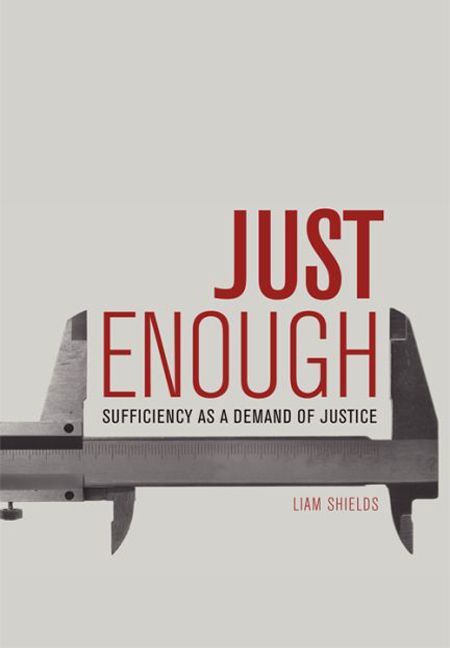7 - Conclusion
Published online by Cambridge University Press: 20 April 2017
Summary
In this book I have argued that we should be optimistic about the prospects for sufficientarianism and the role that sufficientarianism has in a complete and sound account of justice. I have explained that even though two powerful objections can be made to the two most prominent versions of sufficientarianism, these versions of sufficientarianism relied upon extreme claims that sufficientarians need not make. I set out a characterisation of the minimum claims that one would have to make in order to hold a distinctive sufficientarian view. I have referred to this as a shift-based understanding of sufficientarianism, and the chapters of this book have defended the principles made available by this understanding as being more plausible than rival principles in a variety of areas. More specifically, I have argued that two sufficientarian principles, the principle of sufficient autonomy and the principle of a good enough upbringing, are indispensable to a complete and sound theory of distributive justice and should have an extensive role in our thought about practical debates about educational fairness and child custody, respectively. In addition, I have argued that the shift sufficientarian approach makes available positions in the global distributive justice debate that are more promising than traditional sufficientarian approaches and non-sufficientarian approaches. In this Conclusion I will briefly restate my main claims before considering what the future holds for sufficientarianism.
Main Claims
The main argument of the book began in Chapter 2 by considering what the prospects for sufficientarianism consist in. I have claimed that the prospects for sufficientarianism are a function of, roughly, three factors. These are:
1. the degree to which sufficientarian principles are indispensable;
2. the extent of the role these principles play in our thought about practical debates;
3. the number of these principles.
With this in mind, I claimed that the first task in examining the prospects for sufficientarianism was to see if there were any indispensable principles of sufficiency since, if we could do without them and get the most plausible guidance, then there would be no reason to be optimistic about principles of sufficiency having a role in a sound and complete account of distributive justice. Having done so, I claimed that indispensable principles of distributive justice are those that are distinctive and more plausible than their rivals.
- Type
- Chapter
- Information
- Just EnoughSufficiency as a Demand of Justice, pp. 193 - 200Publisher: Edinburgh University PressPrint publication year: 2016



